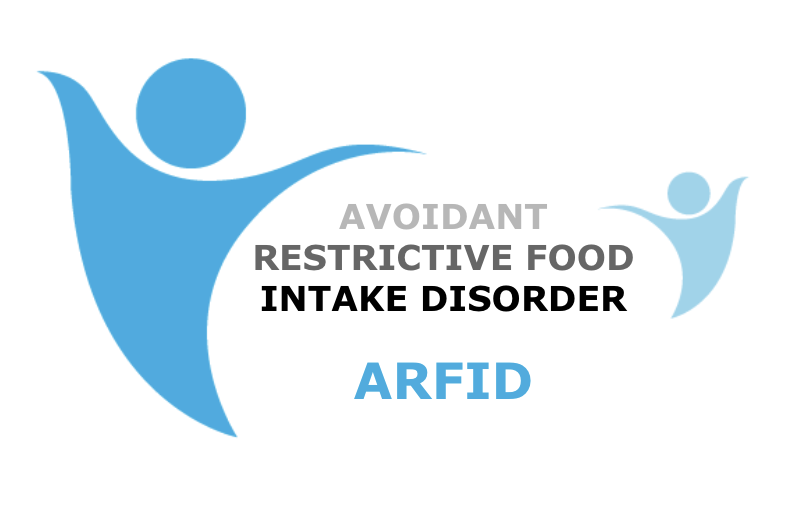What is ARFID?
Avoidant Restrictive Food Intake Disorder (ARFID), is a relatively new eating disorder diagnosis, first mentioned as a diagnostic term in 2013 within the 5th edition of the DSM (Diagnostic and Statistical Manual of Mental Disorders). Prior to 2013 people with ARFID may have been given the diagnosis of selective eating disorder. ARFID, whilst relatively common, is still a lesser known eating disorder than disorders such as bulimia or anorexia and people often find it extremely difficult to know where to seek help.
What is ARFID?
ARFID is an eating disorder characterised by limited food intake and food avoidance which can lead to severe weight loss or nutritional deficiencies; and in children, impaired growth and physical underdevelopment. Additionally, ARFID causes significant emotional distress in both the sufferer and carer(s), and can often lead to anxiety or depression as well as impairments in social functioning.
There are three main reasons why someone with ARFID may avoid or restrict their food intake:
Food avoidance due to sensory sensitivities related to a particular smell, flavour, appearance or texture of food
Lack of interest in food and eating or lack of appetite
Fear of eating certain foods because of a former bad experience such as choking or vomiting
A key distinction between ARFID and other eating disorders is that food restriction or avoidance is not associated with a fear of weight gain or concerns around body appearance.
Difference between picky eating and ARFID
Often, children suffering from ARFID may go undiagnosed as their presentation may resemble that of picky eaters. However, a key difference between picky (or selective) eaters and ARFID is that picky eaters generally meet their basic energy requirements for optimum growth and development, whereas those with ARFID do not. Consequently, children (and adults) with ARFID may suffer from serious physical and psychological complications. Picky eating is a fairly common condition in developing children characterized by having very clear preferences for eating specific foods accompanied by a lack of interest in trying novel foods. Fortunately, most children will likely outgrow this developmental phase on their own as they start introducing more flexibility in their diet.
ARFID risk factors
The factors that contribute to the development of ARFID are highly complex and individual to the person suffering. Research shows that it is the interaction of different biological, psychological and social factors which places an individual at risk of developing ARFID. Risk factors include co-occurring conditions like autism and ADHD, anxiety disorders and OCD, as well as severe picky eating during childhood transitioning into ARFID later on.
Signs and symptoms
There are several behavioural and physical symptoms that present in people with ARFID and that should be considered if someone suspects they or someone they care for may be suffering from it.
Behavioural signs include:
Extreme food restriction or food refusal
Very limited variety within the foods eaten (e.g. only a certain brand of yogurt, or only eating fruit if it is cut in a certain way)
Consuming only foods with specific characteristics (such as only eating beige foods or liquid foods)
Lack of appetite without apparent reason
Eating or chewing very slowly
Fear of choking or vomiting
Physical signs may include:
Poor digestive function
Low quality of sleep
Dizzy or lightheaded when standing up
Cold hands and feet
Hair falling out
Brittle nails
Low energy and poor concentration
Irregular menstrual cycle or complete absence
Mood swings
Treatment for ARFID
Given that both the behavioural presentation and cause of ARFID are highly unique to the individual, an appropriate treatment should be devised that is tailored to the needs of the sufferer. Generally, the first point of contact should be a GP appointment that can then refer to a specialist service where ARFID is best treated. Based on the severity of the ARFID, the patient will be either referred for inpatient treatment or, if the risk of physical complications is low, for outpatient treatment. A multidisciplinary team is most often required involving a physician in charge of monitoring the physical health of the patient, a psychologist or occupational therapist to help with anxiety management and a specialist registered dietitian or nutritionist to help manage any nutritional deficiencies and sensory sensitivities. In terms of specific therapy treatments for ARFID, CBT-AR is the leading treatment for children over 10 years of age and adults, and family-based therapy for children under the age of 10.
If you or anyone you know is experiencing any of the signs and symptoms of ARFID and/or a significant level of distress around eating we highly encourage seeking appropriate medical and psychological support as soon as possible. This will prevent any new or further complications and promote better overall health and wellbeing. At The London Centre our team of specialist eating disorder professionals are able to support you on your recovery journey to achieving optimal health and a life of food freedom.
For more information or to book an assessment, please contact us on info@thelondoncentre.co.uk

